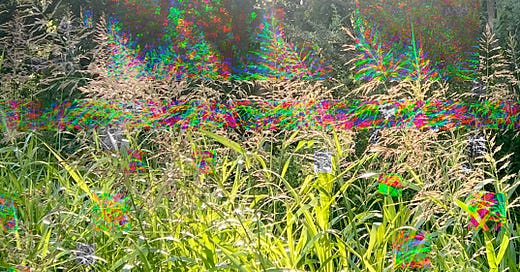They say to follow your passion, monetize your hobbies, and never settle. Great, but can someone explain what a ‘solutions architect’ even does? This, in combination with AI creating and taking over jobs simultaneously, mass layoffs, and an influx of virtual assistants inconveniently placed on every website I click on; I did what any reasonable person would:
I had an existential crisis.
My name is Kajal Vishwakarma, and I’m an incoming data science major at the University of Tennessee, Knoxville. I was sitting at the same dining table I am now when the idea came to me. What if I started a newsletter? Like, about career stuff or something?
Career advice is mostly crap anyway. High school didn’t help, but the internet feels worse. Do what you like to do. Do what you love and never spend a day working. Don’t do what you love, do what makes money. Do something easy, have five side hustles, and invest in stocks. Whatever it may be, it is contradictory and inapplicable. No wonder so many teenagers and adults spend way too much time wondering what to do for the rest of their lives. Or go through an existential crisis.
This article, though, changed something in my brain chemistry. Go read it, stare at the wall for five minutes, then come back.
Done? Just kidding. In case you haven’t read it, (But seriously, please read it) this article argues you have to be a certain type of crazy to have certain jobs. The job for you will be one that corresponds to the type of crazy you are. A match made in corporate heaven. Are you the kind of crazy that can spend six days debugging code, only to find it was a missing semicolon—and somehow stay sane? Maybe tech really is the field for you.
This article highlighted something I feel like should’ve been obvious. This is the kind of career advice I wanted in high school. Finding out what kind of crazy you are is a personal journey, but what better way to find out what kind of crazy a job requires than interviewing someone with it?
In this publication, I’ll be exploring the details of how the tech and business worlds are changing through interviews, my personal observations, and honest conversations about work. New jobs are being created every day, but what are these jobs? What do these jobs actually entail? Even about the jobs that already exist, what do the workers actually do? A software engineer does a lot more than just code, and I’m sure there are many common misconceptions about the field. A job description can only tell you so much.
This newsletter is for those curious about the next steps in tech and the ever-changing state of the job market. These articles will be focused on understanding new jobs, their various responsibilities, and what life looks like for the person. Through the articles I publish, I hope to assuage my own fears as well as yours, one interview at a time.
Millions of new jobs are on the horizon, according to the U.S. Bureau of Labor Statistics. But what are they? What’s the real job?
Here’s to the jobs that don’t exist yet, the jobs no one’s heard of, and the jobs people still get wrong.




